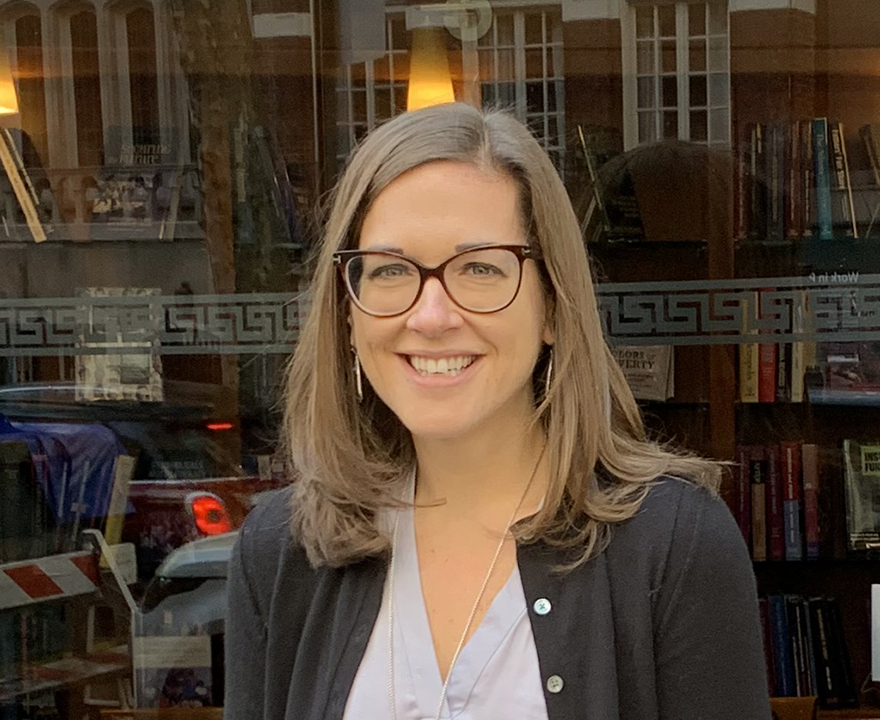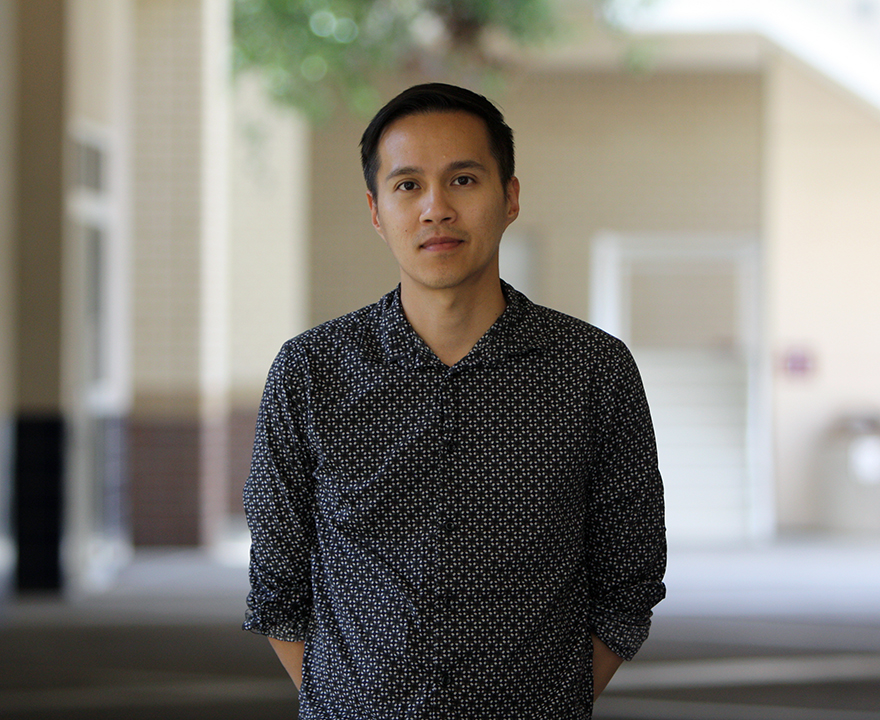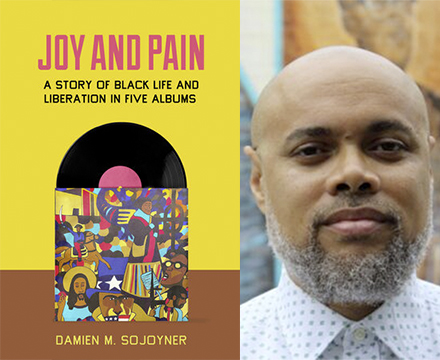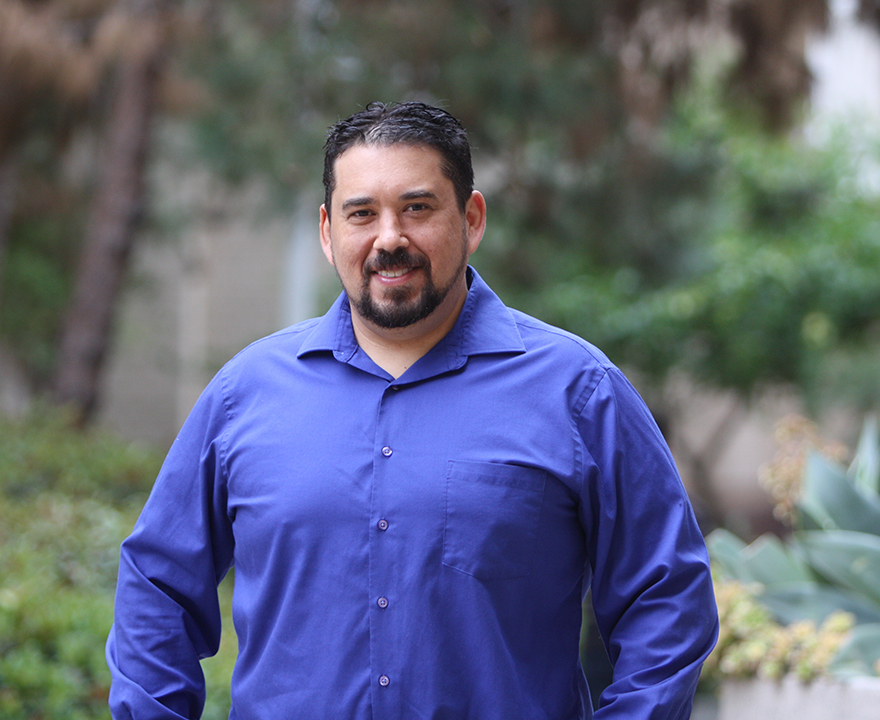UCI social sciences pilot projects taking on racism

UCI social sciences pilot projects taking on racism
- May 8, 2023
- An update on funded works from inaugural grant recipients
In the summer of 2020, with funding support from the Dean’s Leadership Society, the UCI School of Social Sciences launched a pilot research grant program to support faculty and graduate student activities addressing systemic racism; police use of force; alternatives to policing; alternatives for economic empowerment; tackling implicit bias; disparities in health, education and housing; and global and critical race scholarship across the disciplines.
Part of the school’s larger Anti-Black Racism Action Plan, the program fielded multiple applications and awarded more than $25,000 in support of projects including an analysis of intersections between youth-police contact by disability state and race, creation of a standard rubric to measure effectiveness of campus-level anti-racism initiatives, publication of a book that examines carcerality as the dominant mode of state governance over Black populations in the U.S. since the 1960s, an exploration of immersive experiences that can be used to better implement culturally responsive teaching, and implementation of three separate nationally representative surveys on race, racial attitudes, and American politics.
With the next application cycle opening soon, recipients of the inaugural awards shared progress on their funded work.
 Kristin Turney, Dean's Professor of Sociology
Kristin Turney, Dean's Professor of Sociology
Youth with disabilities, especially disabilities with behavioral manifestations, are at high risk for intrusive police contact, as are youth of color. However, most current research cannot identify disability or race/ethnicity as distinct risk factors from socioeconomic and behavioral characteristics. Using the Fragile Families and Child Wellbeing Study, we assessed disparities in three measures of youth-police contact by disability status, race/ethnicity, and intersections between the two. Regression models indicated disparities in in-school police contact. Youth diagnosed with Attention-Deficit or Attention-Deficit/Hyperactivity Disorder (ADD/ADHD) reported more contact than their non-disabled counterparts. The few youth in the sample diagnosed with autism reported relatively little police contact. Within-race/ethnicity disparities by ADD/ADHD diagnosis were largest and most robust among Hispanic girls. Black boys diagnosed with ADD/ADHD, compared to Black boys without diagnoses, were more likely to be stopped at school. They also reported more intrusive contact than White boys with ADD/ADHD diagnoses, suggesting they faced risks associated with both their disability and their race/ethnicity. Findings highlight inequalities in police contact among youth – especially youth of color – with disabilities. Given the repercussions of police contact for health, educational attainment, and further interactions with the justice system, policing may exacerbate inequalities between youth with and without disabilities.
 Long Bui, Associate Professor of Global and International Studies
Long Bui, Associate Professor of Global and International Studies
With this grant, we collaborated with students and staff from the School of Social Sciences, School of Education, Langson Library, Orange County Department of Education, Orange
County Human Relations, as well as Black churches, Indigenous populations, and members of affinity groups throughout Orange County. Through studying a variety of initiatives aimed to address racism and their impact measurements, using survey and focus group data, a standard rubric is being developed that might be widely applied to anti-racism initiatives across the campus and beyond to measure impact on reducing anti-Black bias, improving the Black experience, and supporting a more equitable culture. We plan to make the rubric available on the new website for the center for Racial Justice before 9/30/23.
 Damien M. Sojoyner, Associate Professor of Anthropology
Damien M. Sojoyner, Associate Professor of Anthropology
The Anti-Black Racism Pilot Project grant was instrumental in the publication of Against the Carceral Archive (Fordham University Press). The book is a meditation upon “carceral archival project,” offering a distillation of critical, theoretical, and activist work of prison abolitionists over the past three decades. Working from collections at the Southern California Library (Black Panthers, LA Chapter; the Coalition Against Police Abuse; Urban Policy Research Institute; Mothers Reclaiming Our Children; and the collection of geographer Clyde Woods), it builds upon theories of the archive to examine carcerality as the dominant mode of state governance over Black populations in the United States since the 1960s. Each chapter takes up an element of the carceral archive and its destabilization, destruction, and containment of Black life: its notion of the human and the production of “pejorative blackness,” the intimate connection between police and military in the protection of racial capitalism and its fossil fuel–based economy, the role of technology in counterintelligence, and counterinsurgency logics. Importantly, each chapter also emphasizes the carceral archive’s fundamental failure to destroy “Black communal logics” and radical Black forms of knowledge production, both of which contest the carceral archive and create other forms of life in its midst.
 Ann Hironaka, Professor of Sociology, and Khamia Powell, UCI education Ph.D. 2022
Ann Hironaka, Professor of Sociology, and Khamia Powell, UCI education Ph.D. 2022
Culturally responsive praxis (CRP) acknowledges, responds to, and celebrates students’ cultural, racial/ethnic, and linguistic backgrounds, thereby providing equitable access to learning opportunities. However, teachers find the CRP framework challenging to conceptualize and
difficult to enact in practice. In collaboration with a high school in Southern California, we explored immersive experiences—designed to deepen teachers’ understanding of themselves, their students of color, and their practice—as a method to support the enactment of CRP. Student survey data was used to determine to what extent high school students’ perceptions of school connection vary by race and/or ethnicity. Students’ perceptions of school connection did not vary by race/ethnicity, while data from a focus group with students of color complicated these findings by illuminating the lived experiences of students of color in high school. In the next phase of the study, 20 teachers engaged in an 8-week critical professional development (PD) model. Pre- and post-survey data with the PD teachers and a control group measured empathy and critical consciousness to determine to what extent immersive experiences develop teacher empathy and critical consciousness. Findings showed a statistically significant increase in the critical consciousness of the intervention group. Finally, qualitative interviews and teacher reflections were used to show how immersive experiences promote, inhibit, or alter the enactment of culturally responsive pedagogy. Findings indicate that immersive experiences promoted greater confidence and motivation for enacting culturally responsive praxis, positioning immersive experiences as an innovative method to bridge the gap between CRP theory and practice.
 Michael Tesler, Professor of Political Science
Michael Tesler, Professor of Political Science
With the support of the School of Social Sciences, my graduate students and I fielded three collaborative nationally representative surveys on race, racial attitudes, and American politics via the online polling firm Lucid in 2020, 2021, and 2022. These surveys have provided several key findings, which are now featured prominently in works by me and my collaborators.
Indeed, the surveys contain some powerful results in support of my current book project with Mary McThomas on race and the politics of pitbull bans. These surveys replicated our prior findings that most Americans explicitly associate pit bulls with African Americans and that anti-Black prejudice is one of the leading predictors of widespread negative opinions about these dogs. But we also used these surveys to extend our prior findings in two important ways. First, we experimentally show that implicitly associating the pitbulls with African Americans further increases white Americans’ support for banning the breed; and that the link between anti-Black prejudice; and that opposition to pitbulls is driven primarily by negative stereotypes of Black men as violent. Thus, by providing a novel empirical example that extends existing research on how racial prejudice erodes support for policies associate with African Americans, our analyses of pit bulls provide broader insights into the ongoing power of anti-Blackness in U.S. politics.
The data from these surveys have been even more useful for past and present UCI affiliates. Experiments from these surveys are now being used in a current book project by former UCI graduate student (now assistant professor at Wellesley College), Maneesh Arora, on how to dampen the effectiveness of explicit appeals to racial prejudice; they were used in Nathan Chan’s (now assistant professor at Loyola Marymount University) 2022 dissertation to show how youth consciousness informs racial prejudice; they are being used in a current paper by UCI graduate student William Kidd on how racially prejudiced attitudes erode democratic norms; they are being used in a book project by my UCI Presidential Postdoctoral Fellow Program mentee, Christine Slaughter, to show that African Americans are much less affected by potential obstacles to vote than Whites. And in a current co-authored paper with UCI graduate Samantha Canty, which was presented recently at the National Conference of Black Political Scientist’s annual convention, we use the data to explore Kamala Harris’s relatively tepid support among African Americans.
Would you like to get more involved with the social sciences? Email us at communications@socsci.uci.edu to connect.
Share on:
Related News Items
- 5 takeaways from a conference on free speech in higher ed
- The President's Day: Managing Time in the Oval Office
- UC Irvine graduate programs in social sciences recognized among nation's best in U.S. News & World Report rankings
- Using her voice
- Orange County Supervisors to consider calling for review of Do plea deal


connect with us: